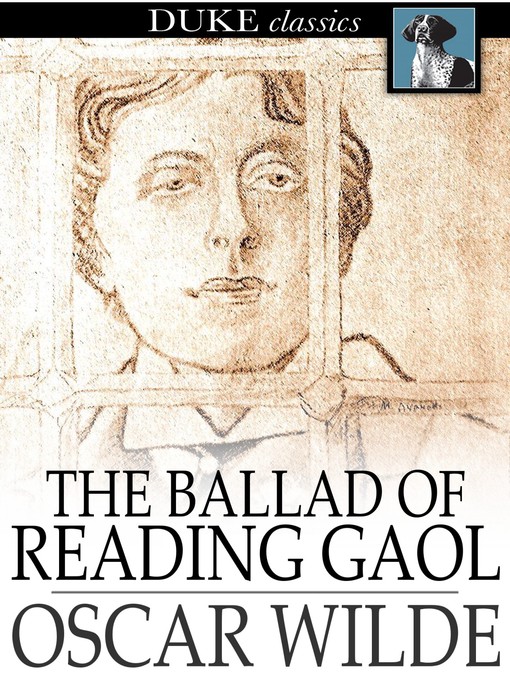


The idea that men find peace in religion and prayer becomes a motif from the beginning of the poem. The poison inside their body slowly kills them and their guilty conscious produces more pain than any other punishment could. The prisoners are all tormented by the sin they have done, a sin compared with a poisonous sword. The narrator describes the feeling he and other inmates experience while being in prison. We are thankful for their contributions and encourage you to make your own.Īnd as molten lead were the tears we shed These notes were contributed by members of the GradeSaver community. “Jersey Shore” in the Style of Oscar WildeĬolin Marshall hosts and produces Notebook on Cities and Culture. The coward does it with a kiss / The brave man with a sword!” The earlier verses you hear Wilde read - for whatever definition of “hear” the limitations of eighteenth-century recording devices allowed - end in a summation of just what struck him so deeply about all this business: “The man had killed the thing he loved / And so he had to die.”įind more works by Oscar Wilde in our collections of Free Audio Books and Free eBooks. Some do it with a bitter look / Some with a flattering word. Sensing a theme of the human condition, Wilde would later write: “Yet each man kills the thing he loves / By each let this be heard. There he witnessed a Royal Horse Guard trooper hang for cutting his wife’s throat. Wilde got his material for this work straight from the source: convicted in 1895 of “gross indecency,” he did the following two years of “hard bed, hard fare, hard labour” at HM’s Prison, Reading. “A little sincerity is a dangerous thing, and a great deal of it is absolutely fatal,” for example, or that jewel of so many Facebook profiles, “We are all in the gutter, but some of us are looking at the stars.” I personally prefer “I can resist everything except temptation,” but none of these quite hold the power of Wilde’s immortal (if seemingly unconfirmed) dying line: “Either those drapes go or I do.” Now you can hear the poet, playwright, one-time novelist, and dedicated raconteur speak his own words in this recording of two verses from his 1897 poem The Ballad of Reading Gaol, embedded above. Even those of us who have never read The Importance of Being Earnest, The Picture of Dorian Gray, or anything else Oscar Wilde wrote can still recite a thing or two he said.


 0 kommentar(er)
0 kommentar(er)
